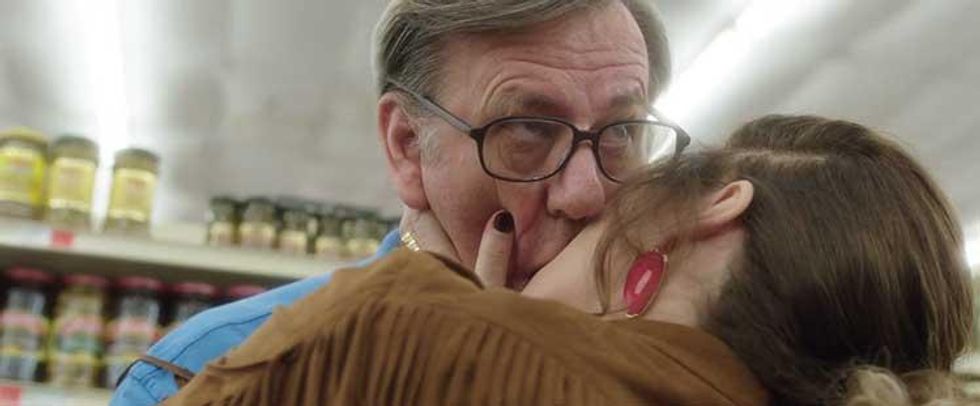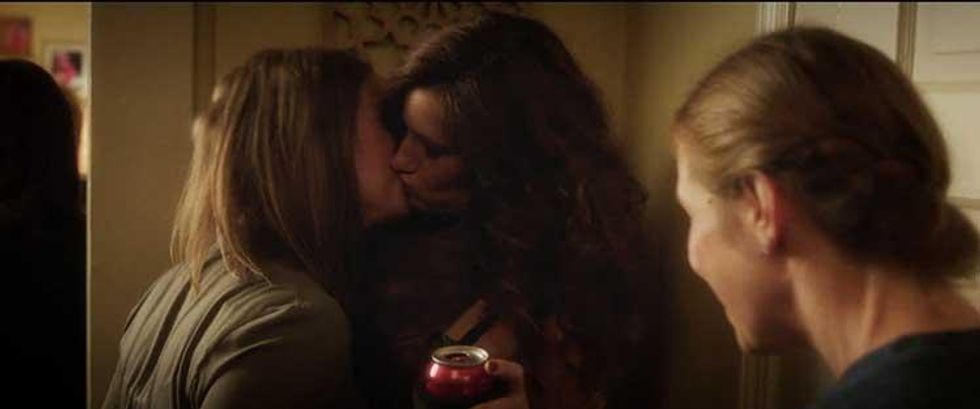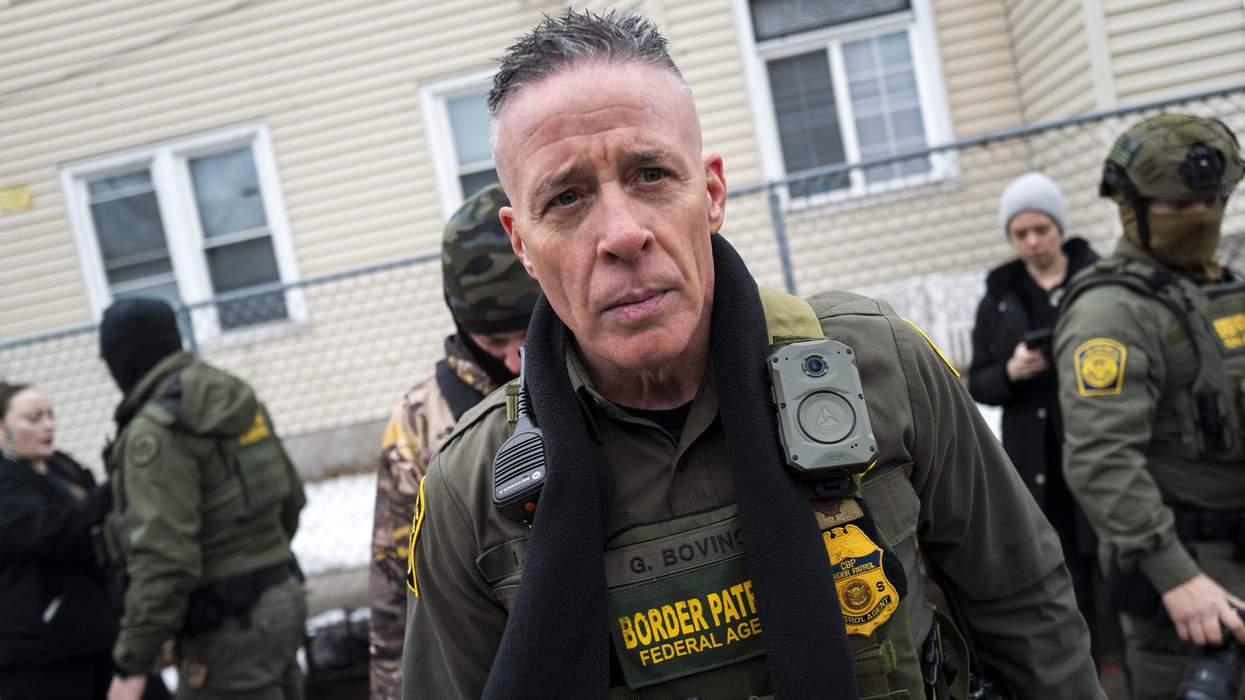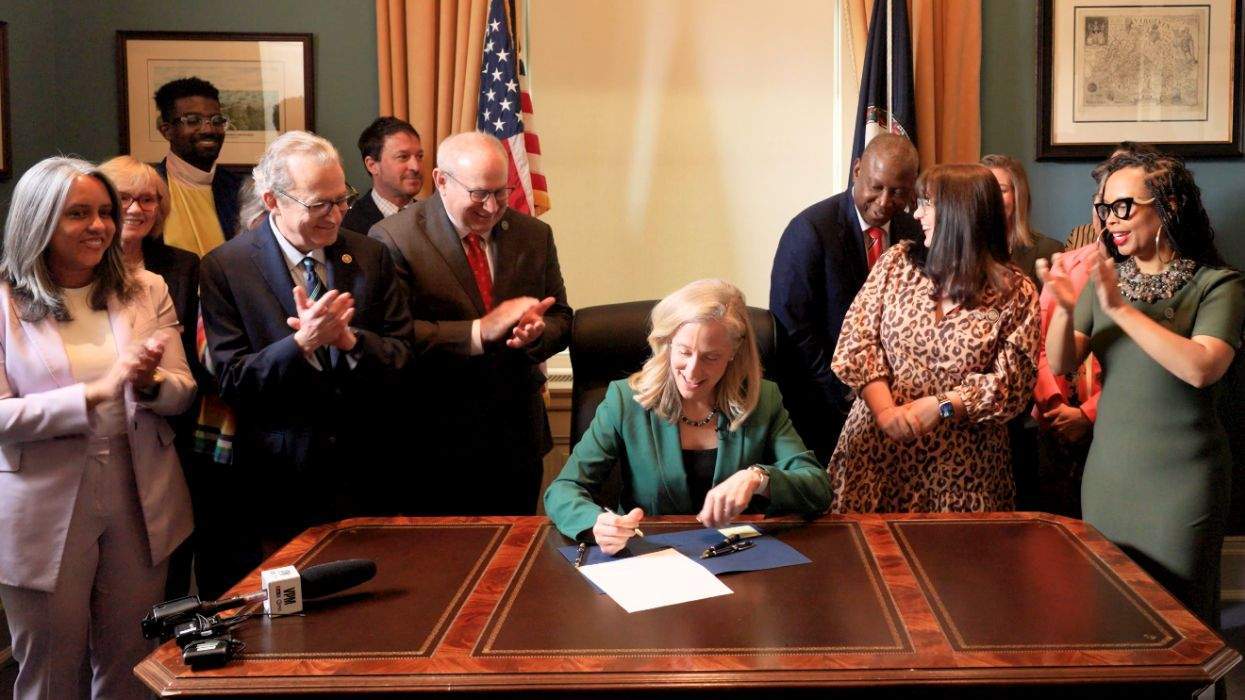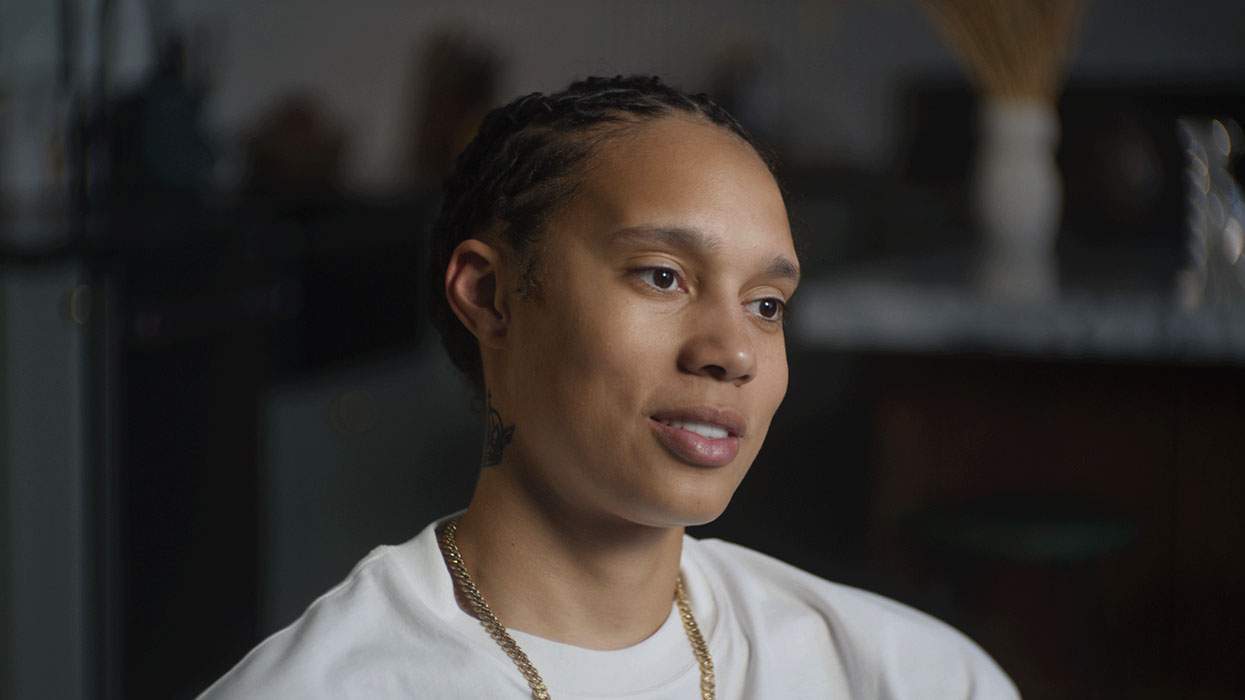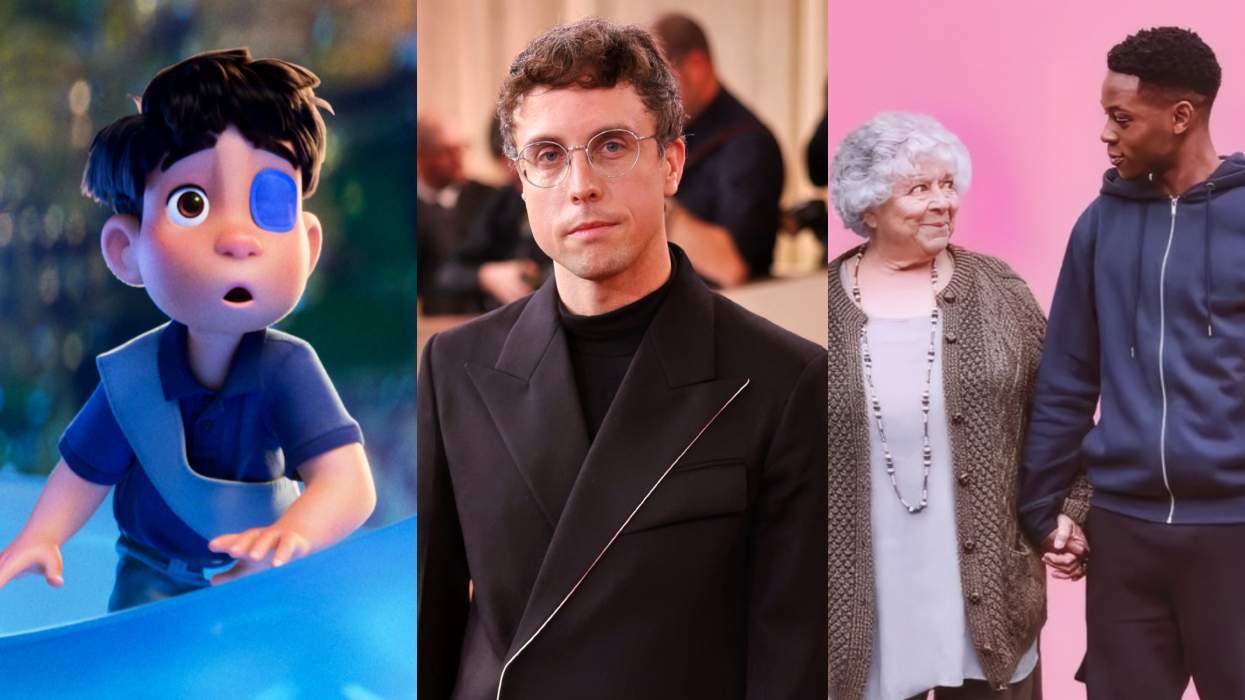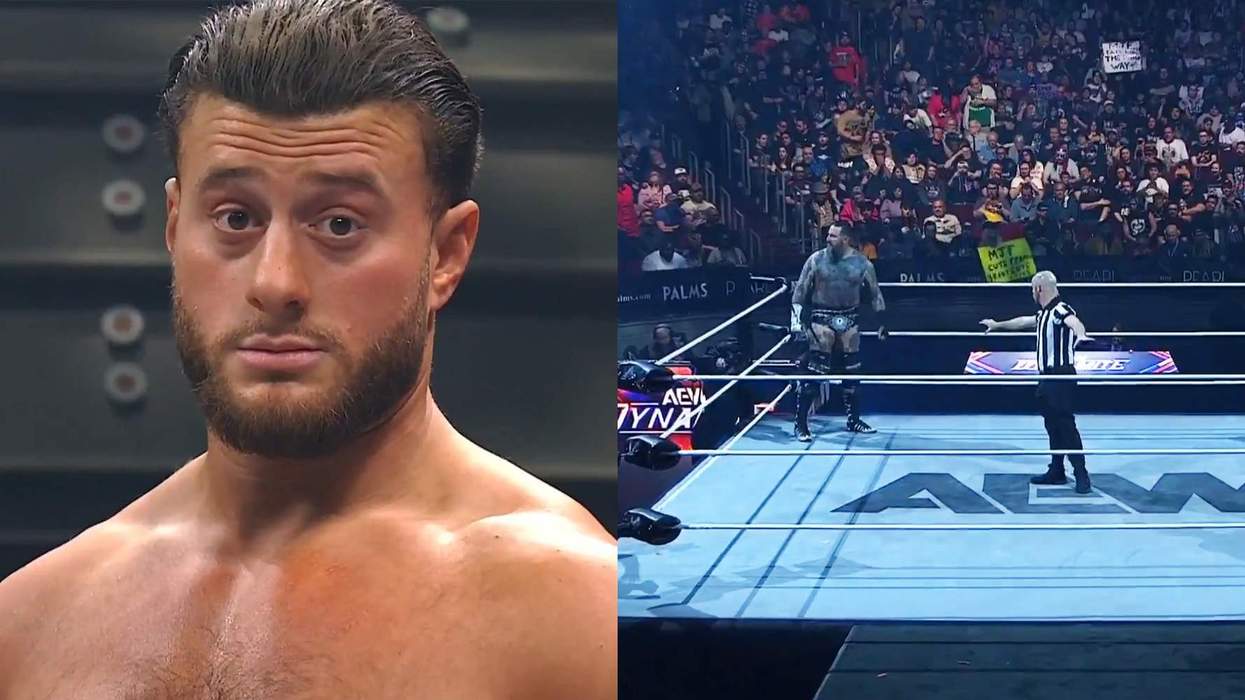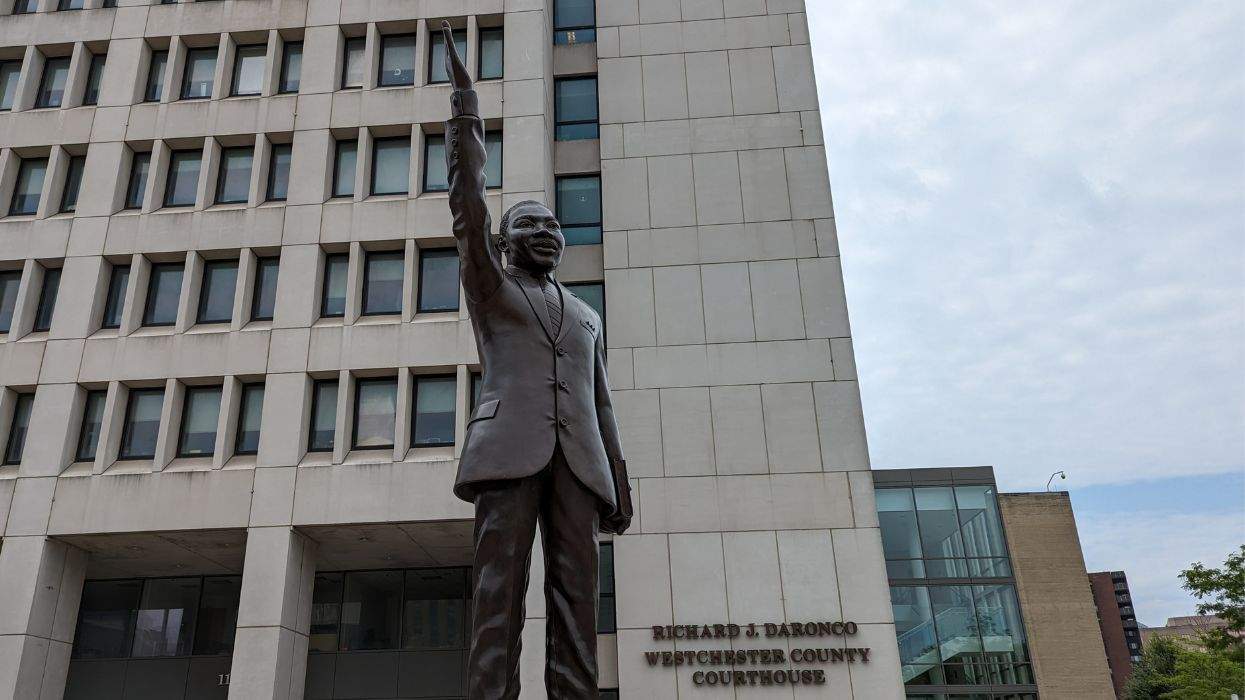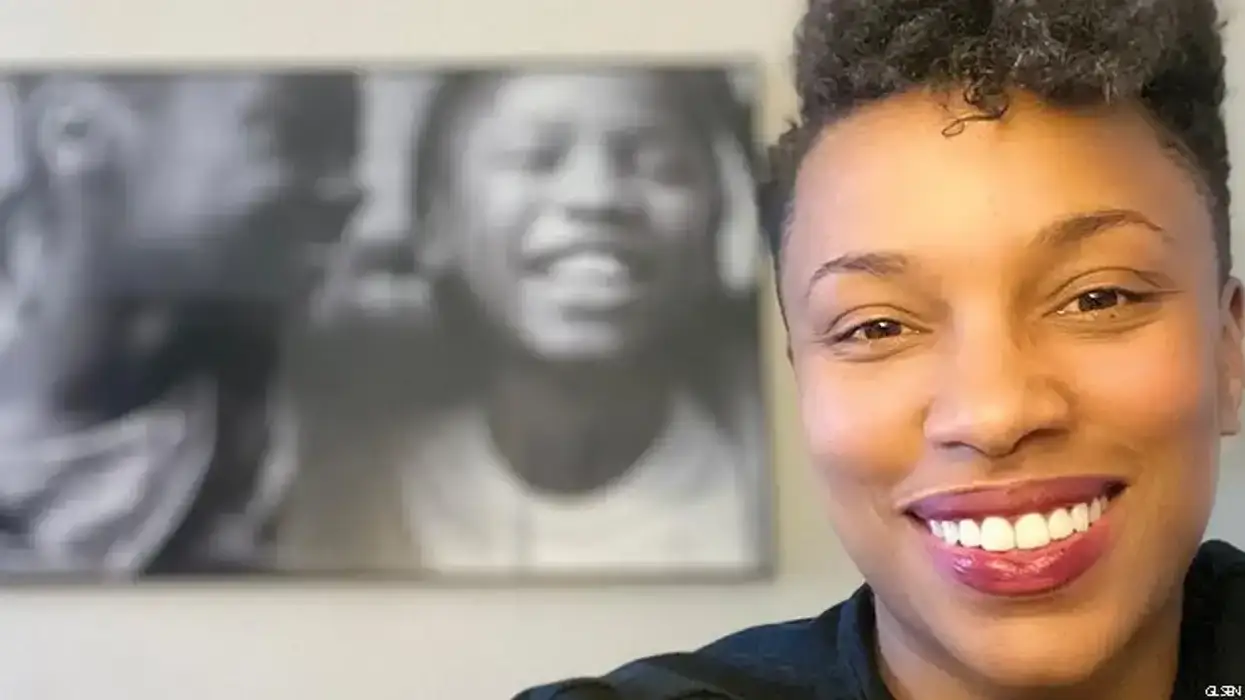In last year's highly-entertaining comedy Bad Moms, Kathryn Hahn's Carla character guzzles a White Russian in the middle of a grocery store before sucking face with a man twice her age.
The drunken kiss was included in the version of Bad Moms aired on Delta flights, though another Carla make-out session -- with a fellow PTA mom -- was oddly edited out of the airline's in-flight entertainment.
A kiss deemed appropriate for in-flight entertainment.
A kiss that was censored from the in-flight version of Bad Moms on Delta.
When asked about the inequity, spokespeople for Delta and STX, the studio that produced Bad Moms, which costars Mila Kunis and Kristen Bell, blamed each other. Delta accused the studio of the anti-LGBT edits, and the studio called out the airline for running this particular edited version of the film. Both companies adamantly reaffirmed a commitment to depicting LGBT people with respect and equanimity, but that doesn't change the fact that countless numbers of Delta customers watched a neutered version of Bad Moms.
This month Delta sponsored an impressive 16 Pride events around the U.S., Canada, and the U.K. Scroll through Delta's Instagram feed and photos of planes with rainbow flags pop up. One post in early June of a rainbow flag with a plane flying high above it reads, "We're proud to be a part of #Pride2017 and honored to support the LGBTQ community throughout the month and every day of the year."
When asked why Delta would run a movie that treats same-sex and opposite-sex pairings differently, especially in light of what appears to be a commitment to LGBT people, the company released a statement apologizing for the edited version. Delta is offered an edited version of a film or an unedited version, but does not have control over which cuts are made, Delta spokeswoman Kate Modolo claimed.
"Because we don't have rights to edit movies to our own standards, Delta has committed to not showing a film at all when an edited version is required but goes beyond omitting explicit material to remove scenes that reflect the diversity of our employees and customers. We're sorry we missed this one," reads Delta's official statement on its version of Bad Moms, which also includes several kisses between Kunis's character and a male love interest, including a scene of the two of them waking up in bed after a hookup.
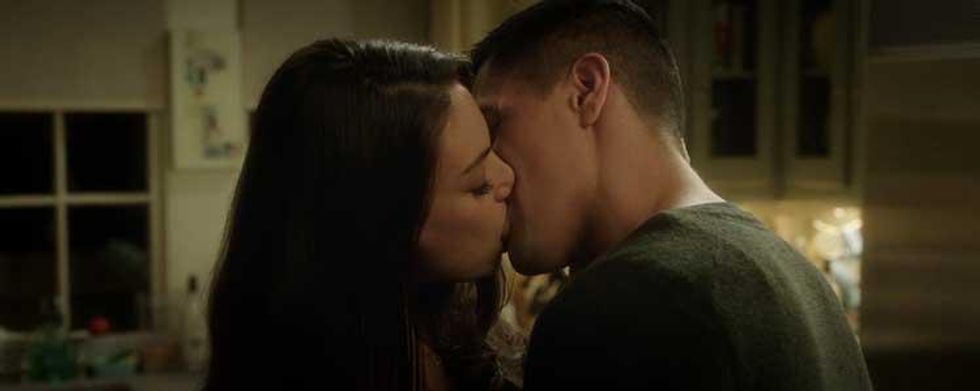
Delta offers a wide selection of free in-flight entertainment for all of its passengers, including TV shows, popular movies, news programs, and more, so there is concern over what passengers can view from each other's seats, and therefore the company opts to screen edited versions of certain content, Modolo said.
"There's the edited version, and there's another version that's edited for explicit content, for language, or nudity. ... We don't have the right to request additional edits or edit the films ourselves," Modolo said. "Our guidelines for putting films on board is one where we adhere to, kind of, network television standards for explicit materials for nudity and language and things like that."
Modolo promised that if Bad Moms weren't coming off of the in-flight entertainment rotation at the end of this month anyway, the company would pull the version it's running.
Meanwhile, a spokeswoman for STX, Patricia Rockenwagner, told The Advocate that the studio would request that Delta pull the current version and air the unexpurgated film.
STX appeared equally concerned about the image the edited version of the movie sends to LGBT viewers and provided the following statement: "Edits to films shown on in-flight entertainment are done at the direction of the airlines -- not the studio. STX proudly supports and promotes LGBT rights and has requested the airline and its vendor reconsider what version of the film it airs."
So if both the studio and Delta are deeply committed to LGBT equality, how did this version of Bad Moms make it onto thousands of flights?
Rockenwagner explained that the studio does not work directly with Delta, but rather with a company, Spafax, an agent that sells a particular movie to as many airlines and outlets as possible. Then, if a film is deemed to have explicit content that an airline like Delta prefers not to air on its flights, Spafax works with a company that determines just how appropriate the content is and makes cuts from there. In the case of Bad Moms, the company that made the edits is Post Modern Group, which did not respond to request for comment on why LGBT content was edited from the movie.
"The studios don't decide what films get shown on what airlines, and we don't make any edits to them ourselves," Rockenwagner said. "Bad Moms on a dozen other airlines played in its original form, so it shows that it's at the discretion of the airline."
STX handed the baton that is Bad Moms to an agent that sold it to a company that made the bad-faith edits regarding LGBT content, so it would appear that Post Modern Group is responsible for censoring the queer content. But an argument can be made that the studios should monitor their content once it leaves the proverbial station and Delta should have some sort of fail-safe in place that ensures its content is consistent with its message. While it's great news that Delta apologized for the inequity in Bad Moms and promised to address the issue, the airline has been in this situation before.
Last summer, out comedian Cameron Esposito tweeted about her irritation at the airline after viewing a version of the lesbian period piece Carol, from The Weinstein Company, in which the company that made the edits carved out not just the love scene between the two women leads, which does include nudity, but all intimacy between the women while opting to keep a kiss between a minor male character and one of the female characters. Singer Mary Lambert, who saw the film for the first time on a Delta flight, tweeted to Esposito that she thought the lack of physicality was a directorial choice. From there, the story went viral, at least in LGBT circles.
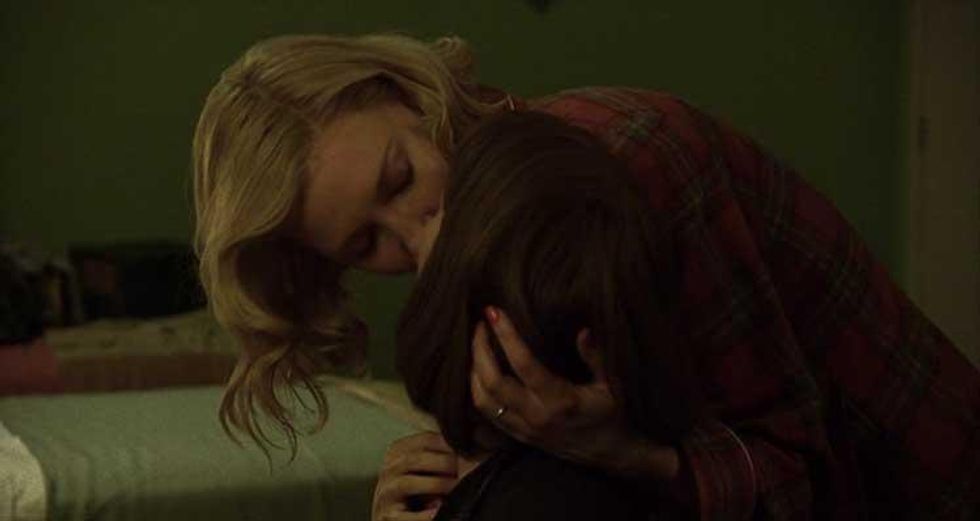
At the time, Delta issued a statement saying, "It is never [company] policy to discriminate on the basis of race, gender, age, national origin, religion, disability, sexual orientation or similar classification," and said it's offered two versions of a film. But in that case, Delta chose a version of Carol that completely altered the film's essence of depicting forbidden love without shame.
Bad Moms now makes the second film in a year that Delta has screened in a form that slights its LGBT viewers. While Delta and STX remain contrite and vowed to take necessary steps to ensure this version of the film is no longer screened on Delta flights, the fact remains that it got out there in the first place. So the responsibility for ensuring that LGBT content doesn't end up on the cutting room floor is systemic.
If the airlines and studios want to affirm a commitment to supporting LGBT people, and it sounds as though they do in this case, they need to do a better job of vetting their vendors and partners, because censorship, no matter how it got there, won't fly.


